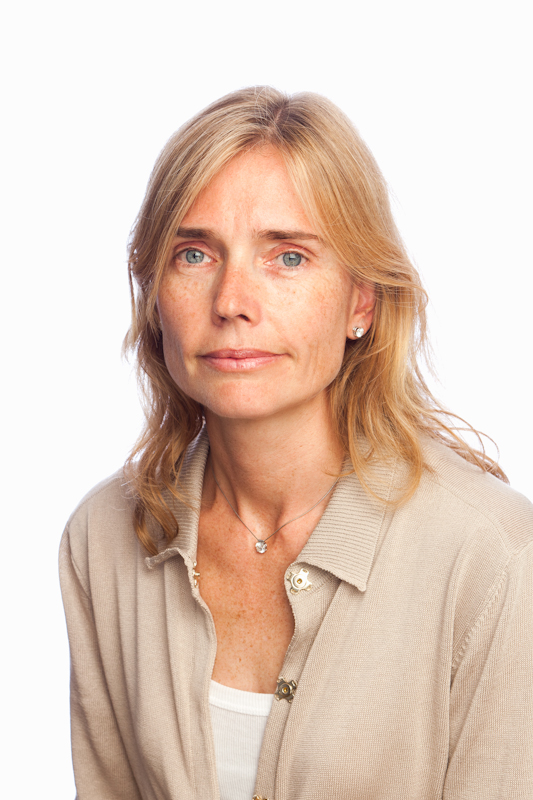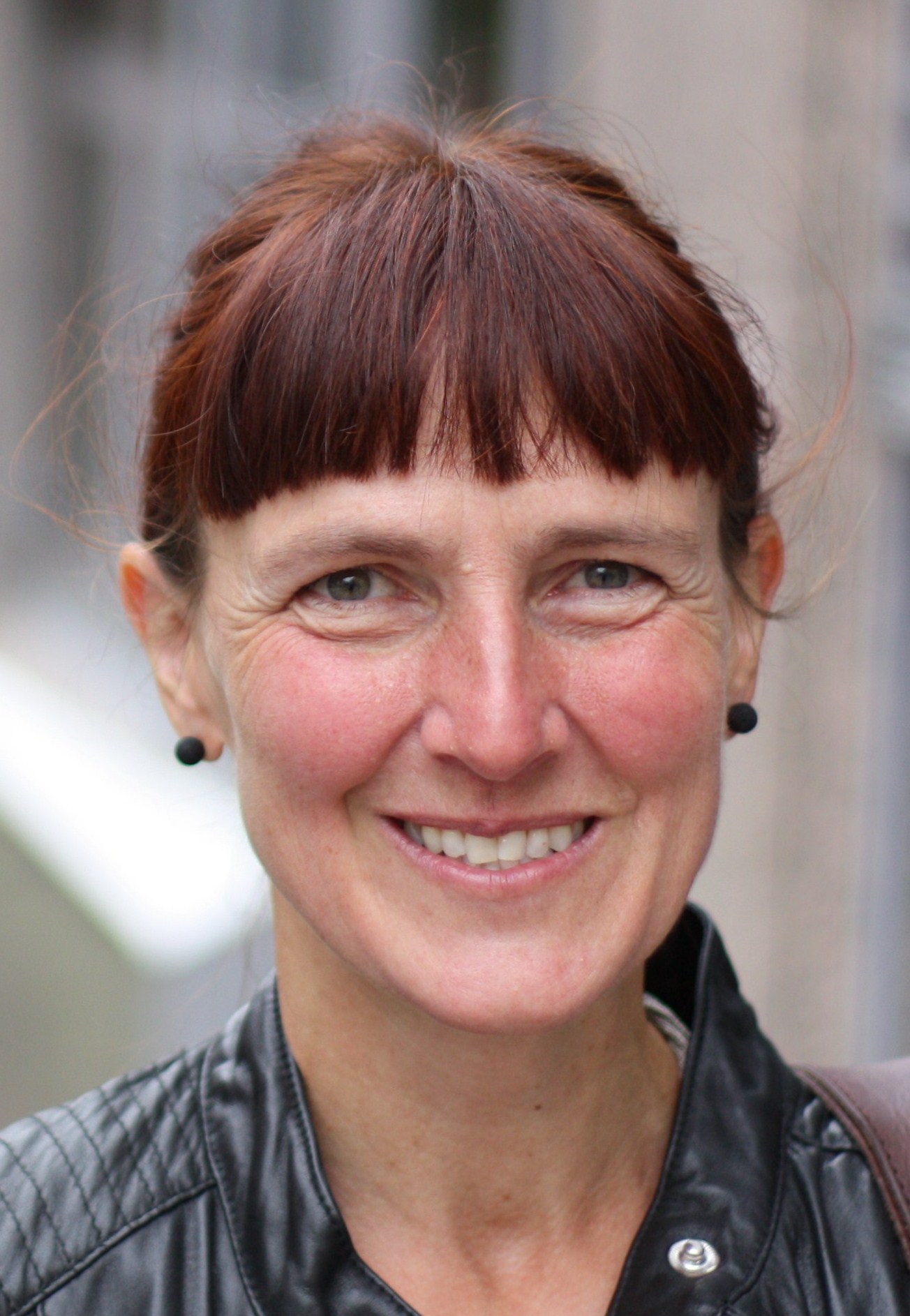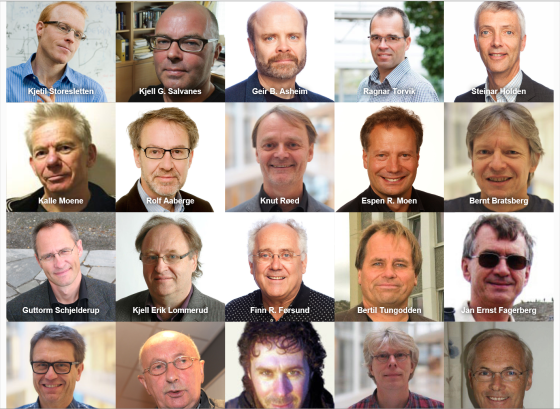Economics is still a male bastion
When the daily newspaper VG presented Norway’s top 20 economists, there was not a single woman among them. “Economics is a male-dominated field,” states economist Karen Helene Ulltveit-Moe of the University of Oslo.
After the government presented its national budget for the coming year, VG.no reported that the 20 leading economists in Norway almost unanimously gave a thumbs down to the government’s tax policy. The news story was illustrated with head shots of the 20 economists, which readers could click on to get their opinions of the national budget.
The photo mosaic made it crystal clear that Norway’s top economics are exclusively white, middle-aged men. Is this really the situation within the academic field of economics?
Objectivity is most important
“We were absolutely not happy about showing a group like that, and we wish there had been better gender balance,” says VG journalist Eirik Mosveen, who had the idea for the story.
The reason the group of economists looked the way it did was because VG used an international ranking of economics researchers, known as the RePEc list (Research Papers in Economics).
“If we had compiled our own group of Norwegian economists, it would not have been any problem to get better gender balance. But our point was that this list is international and based on scientific publications. It’s a list that Norway doesn’t have any influence over, so nobody could accuse us of creating a politically biased group,” explains Mosveen.
Expert list based on self-reporting
The RePEc list ranks 86 Norwegian economists, and in the November version of the list, seven of them were women. The first woman on the list was Karen Helene Ulltveit-Moe, a professor in the Department of Economics at the University of Oslo, who came in 21st place overall.

“I was contacted by VG in connection with the story, but I was on a business trip at the time and couldn’t put it high on my priority list,” she says.
“Does everyone agree that the list reflects who the leading economics experts in Norway are?”
“What the list shows, I gather, is that economics is still a highly male-dominated field,” says Ulltveit-Moe.
The RePEc database compiles and ranks information about publications in the field of economics, as well as about the authors, citations and downloads of articles, and the institutions that the researchers are affiliated with. Since the project began in 1997, the lists from the RePEc database have been used more and more often in evaluations within the research environments, for example when hiring for positions.
An article that discusses the methods used for data collection and ranking in the database shows that the list of authors is largely based on self-reporting. Publishers must make sure to register new articles with the author’s name, and the authors themselves must ensure that their own bibliographies are up-to-date.
Incomplete list
“Since I’ve been in the field, there has become a much greater focus on rankings. With regard to this list, you as an author must register yourself and make sure that all your information is updated. It’s a huge job. I also know of several economists who have not registered themselves. Maybe because it takes too much time or because they simply aren’t so concerned with being visible. If you’ve gotten married and changed your name, the task of registering your information is especially time-consuming,” says Ulltveit-Moe.
Eirik Mosveen from VG thinks that in no way does the RePEc list perfectly reflect who the best economists in Norway are, but it is the closest we can get to an objective sample, which was VG’s main point in this regard.
“I knew this news story could be problematic for the government because the big question is whether the government has scientific backing for its claim that lowering the wealth tax will lead to growth. I had good reason to believe Norwegian economists generally agree that this is not the case, and I thought that by using this list, we could confirm or refute this. If we had compiled our own sample, we would be open to accusations of biased journalism from the government. Since we used an internationally compiled list, it would also have been even more interesting if the people we spoke with actually held different views,” he says.
A male-centred field
The field of economics is no more gender-balanced in Norway, a leader in gender equality, than it is in any other country. Margunn Bjørnholt, a sociologist with a background in economics and the director of the independent research institute Policy and Social Research, sees a connection between male dominance of the field and the narrow scientific approach taken at the universities.

She recently helped to edit an anthology dedicated to Marilyn Waring, one of the leading founders of feminist economics. In the introductory chapter to the book, Bjørnholt and co-author Ailsa McKay argue that the field of economics has traditionally been male centred.
“In the book we discuss that the scientific perspective, the underlying view of humanity, and the economic models that are taught and that almost always dominate policy formulation are very narrow,” says Bjørnholt.
Economics is not a given
She thinks there is a lack of basic critique of the field, as well as critique of the place of economics in society at large.
“It may seem as if economics has a given structure that both humans and the environment must adhere to. But there are other perspectives within economics which state that economics is not a given, but rather a construction that should serve humans and that must take place within a human and environmental framework. Such perspectives are given credence to varying degrees in other countries, but in Norway they seem to be a foreign concept, and they are not taught at Norwegian universities.”
“Nor has the financial crisis led to any revision of the curriculum or what is defined as important in economics, and I think there is a connection between what is being taught and male dominance of the field. For instance, we lack a critique of the consequences of the prevailing economic models for gender equality.”
Research fellows who disappear
Bjørnholt points out that many traditionally female activities are still not regarded as part of the economy because they are not necessarily bought and sold in the marketplace.
“If the life experience of only half of the population is incorporated into economic thinking, there is no resistance to a gender-blind view of the world. I have heard many female economists say that they feel alienated in the field because it has so little to do with their lives. The field does not encompass their reality,” she says.
Karen Helene Ulltveit-Moe believes there are structural reasons for the uneven gender distribution.
“I was the first female professor in my department, which is an old department, and I began there in 2005. Now I have one female colleague at the professor level. There are many more women who are doctoral research fellows; I think it must be almost 50 percent. But recruiting women to permanent academic positions, with the requirements set out by the department, appears to be difficult,” she says.
Reflects research trends
With regard to variation – or a lack of variation – in scientific approach, Ulltveit-Moe thinks that the expert list reflects what is popular in the research field at the moment.
“There are trends in research, like in anything else. When I began, it was mostly research related to theory development or testing of hypotheses based on economic theories. Now empirical research à la ‘Freakonomics’ is in, especially empirical studies of social factors and their impact on everything from academic marks to sickness absence. Economic methods are being used in other social science arenas, and the research is not necessarily grounded in economic theory,” she says, and then continues:
“But I don’t know whether these trends also reflect what people outside of the research community are concerned about,” she says.
Translated by Connie Stultz.
The RePEc is a decentralised, international database of scientific articles – both manuscripts and published papers – and software related to economics research.
Information in the database is used as a basis for ranking economics researchers and research institutions.
A total of 344 Norwegian researchers affiliated with 40 institutions are registered in the database at this time.
As of November 2014, the Norwegian list of experts included 86 researchers, of which seven were women. The first woman on the list was Professor Karen Helene Ulltveit-Moe of the Department of Economics, University of Oslo, who came in 21st place overall.
Researchers must register themselves in the database and ensure that information about their articles is up-to-date.
SEE:

